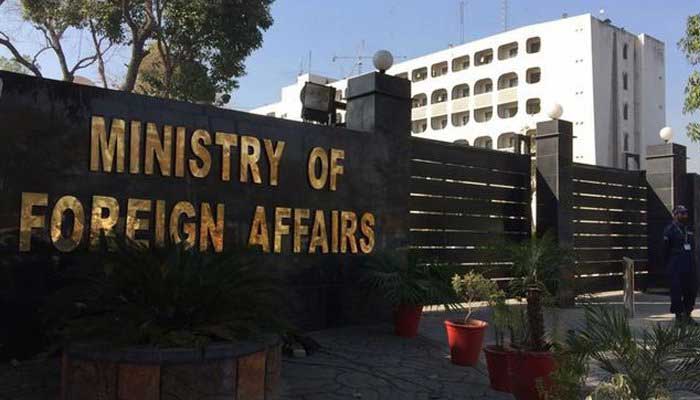Pakistan has strongly condemned recent statements made by Indian Prime Minister Narendra Modi. The Foreign Office called his remarks provocative and irresponsible. It said his speech was a clear violation of international standards.
During a rally in Gujarat, PM Modi made comments that drew sharp criticism from Islamabad. Foreign Office Spokesperson Shafqat Ali Khan said the Indian leader’s speech showed a mindset rooted in extremism. He warned that such thinking poses serious threats to regional peace and security.
According to the spokesperson, Modi’s reference to using water as a weapon is alarming. He said this idea directly violates the Indus Waters Treaty and breaks international law. The treaty, signed in 1960, remains one of the most stable water-sharing agreements in the world. It divides river rights between India and Pakistan with clear terms.
The spokesperson accused India of pursuing expansionist goals. He said India is ignoring its internal problems while chasing global influence. He pointed out India’s involvement in extrajudicial killings abroad. He also condemned New Delhi’s harsh policies in occupied Jammu and Kashmir.
Pakistan’s Foreign Office said the Modi-led government is fueling hate for political gain. It accused the Indian leadership of promoting violence and suppressing minorities. The statement warned that this rising aggression threatens the entire region. It called on the global community to take notice of India’s behavior.
At the Gujarat rally, Modi accused Pakistan of waging a proxy war. He said India had won three wars but continued to face secret attacks. Speaking to a charged audience, he hinted at harsher responses from India. “Should we respond to a bullet with a bullet?” he asked. “Should we not uproot this thorn?” His words drew applause from the crowd.
Modi also referred to an incident on May 6. He claimed militants killed in the event were honored by Pakistan. He called that act an open declaration of war, not just a hidden conflict.
But what alarmed Islamabad most was Modi’s take on the Indus Waters Treaty. He said the treaty unfairly limited India’s water rights. Modi claimed Indian dams in Kashmir were being neglected due to the treaty’s rules. “I’ve just spoken a few words and they’re already sweating,” he said, hinting at future action. He added that India had begun cleaning its dams and would ensure its people got their fair share of water.
The Indus Waters Treaty, arranged by the World Bank, divides rivers between the two nations. India controls the eastern rivers—Ravi, Beas, and Sutlej. Pakistan holds rights to the western ones—Indus, Jhelum, and Chenab. The deal has survived wars and tensions for over six decades.
Pakistan warned that India’s open threat to weaponize water is dangerous. The Foreign Office said Islamabad has the right to respond through legal and diplomatic means. “We urge the international community to hold India accountable,” the statement read.
The spokesperson also criticized India’s ultra-nationalist politics. He warned that this approach is feeding hatred to the younger generation. According to him, such a strategy not only threatens regional stability but also kills any hope for peace and cooperation.
Pakistan said it remains committed to peace and dialogue. But it made clear that such open threats, especially those involving the Indus Waters Treaty, cannot go unanswered.


